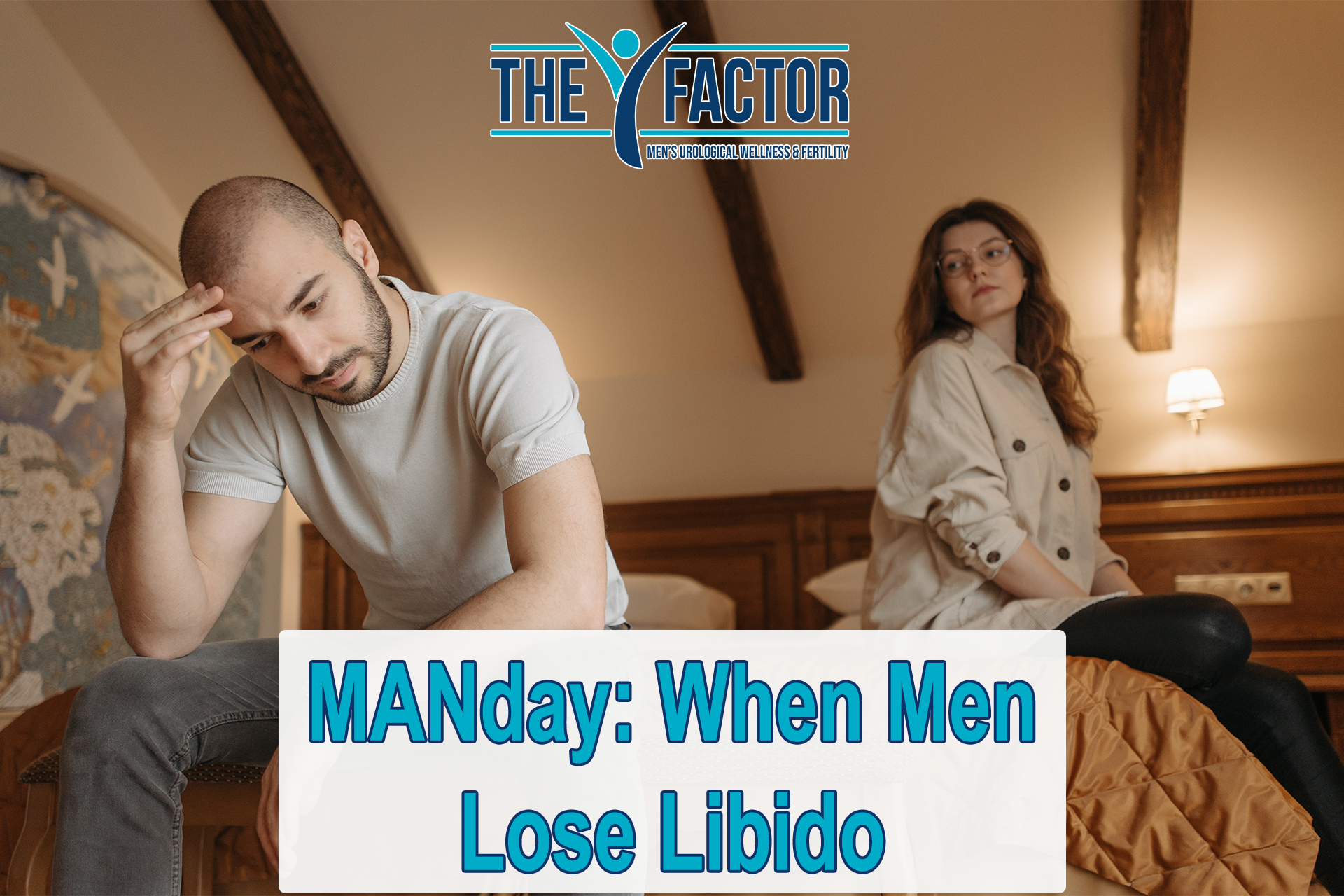MANday: When Men Lose Libido
Libido ergo sum (Desire, therefore I am)
Over the past 4 weeks, how often have you felt sexual desire and how would you rate your level of sexual desire? How men answer this question could reveal the presence of significant sexual dysfunction. Men’s libido, or sexual drive, may be temporarily disrupted due to mental fatigue and anxiety, but usually decreases with aging, although most men keep some sexual desire into their 70’s.
Decreased libido involves reduction in sexual thoughts and fantasies, interest in sexual intercourse, frequency of sexual activity, and sensory sexual stimulation. In younger men, underlying depression, anxiety, fatigue, and substance abuse can lower sexual desire. Most other causes of decreased libido in men include cranial nerve diseases, endocrine diseases, medications, old age, and testosterone decline. By age 70, 30% of men will have low testosterone levels, characterized by lower libido, erectile dysfunction (ED), lower energy, depression, and fatigue.
Recent studies have also shown chronic cigarette smoking, obstructive sleep apnea (OSA), which causes difficulty breathing during sleep, and nocturia, which is awakening one or more times to urinate at night lower both men’s libido and Testosterone. Here’s another stat: 4% of men over age 50 have symptomatic OSA, which is treated with CPAP breathing devices or surgery. Nocturia, caused by common prostate issues, lowers Testosterone due to interrupted sleep cycles. Treating OSA and nocturia will help reverse low Testosterone and improve sexual drive. Although not FDA approved, the antidepressant Bupropion (Wellbutrin) has also shown to improve men’s libido. Testosterone enhancement or replacement therapy will also restore normal Testosterone levels after correction of any afore-mentioned reversible factors.
If you’re worried about a significant recent loss of sexual drive, schedule a visit with The Y Factor team at one of our six locations across the greater Houston area. Your provider will obtain a detailed medical history, perform a physical exam, and order necessary lab tests. After diagnosing the cause of lower libido, the provider will offer appropriate treatment options to restore your sexual drive.
Kim, S. D., & Cho, K. S. (2019). Obstructive Sleep Apnea and Testosterone Deficiency. The world journal of men’s health, 37(1), 12–18. doi:10.5534/wjmh.180017
Rizk, P. J., Kohn, T. P., Pastuszak, A. W., & Khera, M. (2017). Testosterone therapy improves erectile function and libido in hypogonadal men. Current opinion in urology, 27(6), 511–515. doi:10.1097/MOU.0000000000000442
Shigehara, K., Kato, Y., Iijima, M., Kawaguchi, S., Nohara, T., Izumi, K., Kadono, Y., Namiki, M., & Mizokami, A. (2021). Risk Factors Affecting Decreased Libido Among Middle-Aged to Elderly Men; Nocturnal Voiding is an Independent Risk Factor of Decreased Libido. Sexual medicine, 9(5), 100426. doi:10.1016/j.esxm.2021.100426
Yasin, W., Ahmed, S. I., & Gouthro, R. V. (2019). Does Bupropion Impact More than Mood? A Case Report and Review of the Literature. Cureus, 11(3), e4277. doi:10.7759/cureus.4277
Want more information?
Ready to schedule you appointment? Just click on the call us button below to speak directly with our team.

